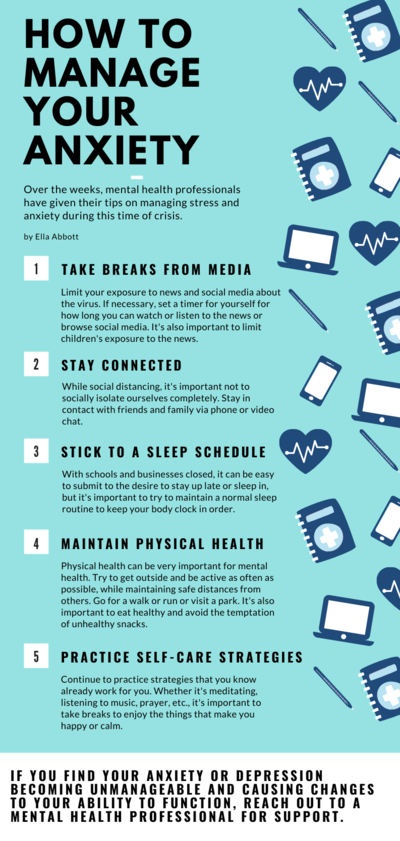Not known Incorrect Statements About How Mental Health Can Affect Physical Health
Do not stay alone. Ah, homework, a compulsory exercise demanded by lots of instructors in high school. It is not an enjoyable activity; usually, it primarily includes exercises to train the student for upcoming tests. A survey led by the University of Phoenix exposes that high school trainees need to handle a typical 17.5 hours of research per week.
And if trainees fail to hand in homework, they will get a bad grade, so they can't allow themselves to simply leave it. Everything needs to be done, or else. Lots of think homework is bad for children, merely since they require time to get some rest for their establishing minds. A student left his seat without caution, walked towards the window, and started to sob frantically. Henderson approached the trainee, who silently told her that the previous night he had actually made an offer with the devil, however wished he had not. "I made an error. Provide me my soul back!" he shouted.
Seemingly reassured, he silently went back to his seat. This wasn't the very first time Henderson had managed a circumstance with a trainee whose behavior demonstratrated a psychological health concern. However this specific incident made her realize that the patchwork of resources readily available to teachers in her school and district that were developed to assist students who may be facing mental illness wasalthough marginally usefulinadequate.
Ultimately, she developed a workshop tailored toward teachers who were searching for fundamental details, ideas, and strategies on ways to develop a much better knowing atmosphere for students who have a mental disorder. Henderson conducted the workshop at expert advancement conferences sponsored by the Virginia Education Association. The workshop just "scratches the surface," Henderson states, however the teachers at her discussions were constantly grateful for the information.
Even though educators can be very reliable in determining red flags in trainee interactions and behaviors, states Theresa Nguyen, vice president of policy and programs at Mental Health America, "our instructors are already pressed to the max." "It's finest that they be viewed as partnerswith moms and dads, the administration, the communityin assisting trainees with psychological health obstacles," Nguyen says.
public education system simply isn't attending to student psychological health in a detailed method. The magnitude of the problem can not be overemphasized. A minimum of 10 million students, ages 1318, require some sort of expert assist with a mental health condition. Anxiety, anxiety, attention-deficit hyperactivity disorder (ADHD), and bipolar disorder are the most common psychological health medical diagnoses among children and teenagers.
The Child Mind Institute reports that half of all mental health problem occurs prior to the age of 14, and 75 percent by the age of 24highlighting the immediate requirement to produce systemic techniques to the issue. "One in five trainees in this nation need treatment," says Dr. David Anderson, senior director of the Institute's ADHD and Habits Disorders Center.

How Does Parental Mental Health Affect Child Development for Dummies
Interest amongst lawmakers, nevertheless, is a fairly brand-new pattern, stimulated mostly by the wave of mass shootings. There is also a growing awareness of the stress and anxiety grasping a lot of teens, the function of injury in their lives, past due analysis over punitive school discipline policies, and the disastrous results of hardship.

" The general public's natural response is to say we need more psychological health services and programs, and we do," Reamy adds (how can stress affect mental health). But much of the nationwide discussion has been naturally reactive, concentrating on "crisis reaction" to school shootings in particularrather than an organized approach to assisting trainees with their psychological health needs.
" The research is extremely clear that when a school has a system-based, evidence-based, whole school technique, all trainees are more engaged academically," states Anderson. Such programs vary but they usually provide substantive professional development for personnel, workshops, resources, and have social and psychological learning competencies integrated into the curriculum. According to a 2014 research study by the Center for Health and Health Care in Schools, trainees who get positive behavioral health interventions see enhancements on a series of behaviors associated with scholastic achievement, beyond letter grades or test scores.
Regardless of the obvious return on investment, comprehensive mental health programs are still just spread across the nation. Numerous resource-starved districts have cutor never ever had on staffcritical positions, namely school psychologists, undermining their schools' capability and capability to effectively address these challenges. While districts may look at working with more school therapists to fill spaces, Kathy Reamy cautions that their function is typically misunderstood.
However real improvement to school mental health programs doesn't and shouldn't end with working with more therapists. "The services they offer are usually responsive and quick treatment in nature," discusses Reamy. "The misunderstanding of the function of Drug Rehab the counselor often either avoids students from concerning us at all or they come expecting long-term treatment, which we just do not have the time to offer." The preconception around mental health is another challenge to getting more services in schools.
We're seeing development that ideally will continue. We can't wait till a trainee is at a crisis state. Like diabetes or cancer, you must never ever wait until stage 4 to step in." - Theresa Nguyen, Mental Health America Still, more trainees are requesting for aid from their school. "We're finding that young people are more eager to speak about these problems, says Nguyen.
As important as the job is, numerous see it as someone else's job (how does school affect mental health). The change in viewpoint is a powerful culture shift for numerous neighborhoods. "What makes it a little harder is the requirement to change how we see studentsspecifically, believing less about a trainees' belligerent behavior, for instance, and more about the factors for that habits," says Joe O'Callaghan, the head of Stamford Public Schools social work department in Connecticut.
7 Simple Techniques For How Bacteria In Your Gut Affect Your Mental Health
" You need to make certain the entire school knows how to support these kids," O'Callaghan states. "Sometimes what takes place is a trainee will feel a lot of support and motivation from a social worker. But then they'll return into the school and may not get the same understanding from https://transformationstreatment.weebly.com/blog/addiction-treatment-delray-beach-florida-transformations-treatment-center the teacher, the principal, the security personnel, whomever.
